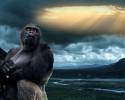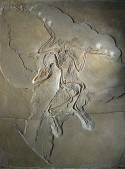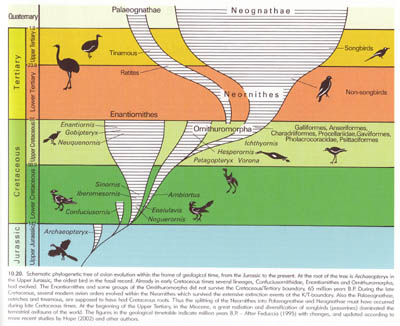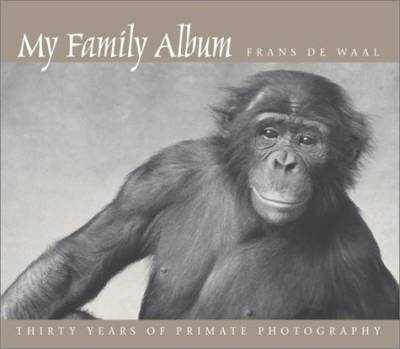This entry is part of a series. For a bit of an introduction and an index of all entries in the series, go here.
 This installment covers Chapter 24, Those "Six Days" of Creation and Chapter 25, The Evidence of Man.
This installment covers Chapter 24, Those "Six Days" of Creation and Chapter 25, The Evidence of Man.
Chapter 24
Chapter 24 is titled 'Those "Six Days" of Creation', and focuses more on the Bible than any other part of the book except for one of the appendices. I have to admit that I was especially interested in this chapter, since it relates to an essay I've written previously, Problems With a Day-Age Interpretation of Genesis. I was curious to see how McCann would explain some of the language that just doesn't seem to make sense to me.
This following passage might seem to indicate that at least McCann wasn't a young earth creationist.
It has been the fashion among certain higher critics to focus an intense emphasis upon the Six Days of creation as recorded by the Mosaic narrative. They insist that each day shall be fixed literally, mathematically and astronomically as a period of twenty-four hours by the clock, notwithstanding the fact that the Mosaic word for "day" means an indefinite cosmic period of time, a while.
The scriptural use of the word "day" may mean just as much or just as little as any arbitrary chronology may demand, yet the parallel between the chronological order of the Mosaic narrative of creation and the most advanced discoveries of natural science is so marvelous that it inspired the great Ampere to observe: "Either Moses knew as much about science as we, or else he was inspired." (McCann 286)
However, just a few pages later, he shows that he might be.
Certain it is that instead of the hundreds of thousands of years [of human existence] demanded by the materialist the scientific probability approaches ever closer to 10,000 years, thus showing a tendency to return to the chronology of the Bible, according to which the Jews reckon that 5,682 years have elapsed (1921) since the creation of Adam. (McCann 291)
This type of inconsistency (some might call it dishonesty) from some creationists has always bothered me. I mentioned it in the beginning of another entry on problems with a day age interpretation of Genesis. Granted, not all creationists use this tactic, but it's infuriating with the ones that do. They'll insist that the Bible is meant to be taken literally, and that the plain sense of words should be used - right up until you use it to point out an absurdity, at which point they say that that particular passage was meant to be figurative or a parable or due to a translation error. So, sometimes the Earth really was created in six 24 hour days, and sometimes the lengths of the days are arbitrary. It all depends on what hour of the day you talk to them.
McCann did bring up a good point about reading ancient texts.
Jerome, one of the foremost of scripture scholars, laid down a principle that must ever guide the student. Be stressed the point that certain things in the sacral writings may be said "according to the ideas of time or according to the appearance of things rather than according to the actual truth." Even today we speak of "the rising and the setting of the sun." (McCann 293)
First of all, poetic license was in use thousands of years ago, just like today. The Song of Solomon is an obvious example of this. And, as McCann pointed out, there were probably phrases in common use that weren't meant to be interpreted so naively literally.
However, McCann's point is a double edged sword. When he quotes Jerome as saying "according to the ideas of time", we have to keep in mind what those ideas might have been, and avoid reading them through the filter of modern understanding. Just consider the world as described in Genesis. Through science, we've learned pretty much what our world is like and how it fits into the universe. We live on a ball of rock with a molten core, orbiting a giant ball of fusing gas, which is itself orbiting the center of our own galaxy, which is part of the local galactic cluster. When many people read the Bible, especially if they start with the preconception that the Bible is accurate, they interpret it to match our modern cosmology. But, many have argued that if you read the Bible looking for the authors' original intent, then it describes a world very different from reality. The ancient authors probably believed in a flat disc world, floating on an ocean, with a rigid dome (the firmament) that contained all of the stars above it.
McCann's general argument for Genesis, is that it is true, but that the meaning may not be exactly clear. It's somewhere between a figurative and a literal interpretation. It does at least appear to be an attempt to incorporate knowledge learned through science into his understanding of the Bible. To start off, consider this passage, discussing the initial creation of Earth.
Both the earth and its now dead moon had passed through fire, and though cooling, the earth's crust was still hot and there were fires in its heart. The moon had no "atmosphere" but science tells us that on the surface of the earth were great masses of steaming, hissing, boiling vapor, turbulent vortices of clouds miles in depth. No light could penetrate this stormy curtain. Such is the record of science. See how it agrees with the Bibleâ€" AND THE EARTH WAS VOID AND EMPTY, AND DARKNESS WAS UPON" THE FACE OF THE DEEP; AND THE SPIRIT OF GOD MOVED OVER THE WATERS.
The surface of the earth was indeed a waste of waters. (McCann 293)
Moving on to the next page, here's how he explains the 'Let there be light' scripture.
Now, and now only could there be question of light on the face of the earth. The condensation of the great zone of vapor that had encompassed this watery world made possible at last the first admission of light. At this same point, too, the Scripture makes its first mention of light : AND GOD SAID : BE LIGHT MADE. AND LIGHT WAS MADE." (McCann 294)
Of course, the story in Genesis still hasn't said that the Sun was created, so the light mentioned above couldn't be coming from the Sun. Here's how McCann explained where the light came from.
According to the Bible the sun had not been created when the first light appeared. Science, with no thought of supporting the Bible, but with many demands that the Bible should be broken down, tells us that the first light consisted of the faint, luminous glow of the nebular masses which were in no sense fiery planets or suns. (McCann 294)
He still hasn't explained how there could be day and night without a sun, but he'll get to that in a couple pages.
Here's a sentiment that is very common to hear even today from people who interpret Genesis rather liberally.
Why did Moses speak of "light" before he spoke of the sun, unless he had some vision of the pre-solar globe which so many centuries later was advanced by so many nebular hypotheses? One would assume that Moses anticipated the criticism that "science and religion are out of harmony with each other," by providing this profoundly subtle chronology of the principal events of creation. (McCann 295)
I guess this is a good a place as any to say that the Earth wasn't formed before the Sun. Wikipedia has a decent summary of the history of our Solar System. A cloud of gas and dust began to collapse under its own gravity. Most of the matter collected in a hot ball of gas in the center - our nascent Sun. As this system continued to evolve (obviously, this isn't biological evolution), the cloud collapsed into a disc (this is just a simple consequence of the physics involved), and the pressure in the central ball became high enough that it began to fuse elements, becoming a true star. The matter in the disc began coalescing under gravity, forming the planets. So obviously, the Earth is younger than the Sun, making McCann's 'profoundly subtle chronology' just plain wrong.
McCann finally gets around to explaining 'day' and 'night' in Genesis, but his argument seems to contradict the story.
The probability is that this light, distinguishing day from night, even though faintly diffused through the mists, originated not with the solar nebula, but in the sun itself, for the reason that the glow by this time was more pronounced upon one side of the revolving earth than upon the other, so that the contrast of night was sufficiently denned to draw a line between the two. Had the light not come from the sun the nebular glow doubtless would have been equal in both hemispheres and there could have been no division between day and night. (McCann 296)
If day and night had to come from the sun itself, then what was the story referring to as day and night in the first three days of creation?
I've also made an issue previously about the language in Genesis referring to, "Let there be an expanse between the waters to separate water from water." Here's how McCann rationalized it.
Between the canopy of the clouds through which the light was diffused with increasing brightness, and the ocean that hitherto had covered the earth, there henceforth existed what the translator has rendered by the English word 'the firmament. ' It was the atmospheric space between the two worlds of water. " (McCann 297 - quoting Husslein)
Here, McCann tries to justify plants existing before the Sun.
Professor Lorande Loss Woodruff, referring to the appearance of plant life upon the earth before the sun could shine through the mists, mentions the existence of life elements upon the earth " before the atmospheric vapors admitted a regular supply of sunlight."
There seems to be no doubt in the minds of scientific men that plants and trees flourished upon the earth under such conditions. Not only is Woodruff of this opinion ("The Evolution of the Earth," p. 105) but John Smyth ("Genesis and Science," p. 40) says: "The plants and trees composing the carboniferous strata may have flourished luxuriously on the margin of shallow seas long before the sun deserved the name of a great light." (McCann 298)
This is ludicrous. Plants obtain their energy from photosynthesis - the Sun. It's possible that some life forms could exist on more feeble energy sources (such as at hydrothermal vents), but there is no way that there would have been luxurious forests, particularly on the scale of those that existed during the Carboniferous.
Here's another example of McCann spinning off into absurd statements based on a false base.
How did Moses know what the scientists now admit? How did Moses know light existed in the universe before the sun, moon and stars beamed upon the earth from the heavens? Why did Moses do the very thing that he never could have been expected to do had he received no divine revelation of the truth, when he reported the creation of plant life before mentioning, even remotely, the sun, the moon and the stars? Why did he begin with the creation of light and then go on in a humanly inexplicable line of scientific sequence, arriving at plants and trees before making any reference to the celestial bodies? (McCann 298-299)
What does this say about Moses considering that plants definitely came into existence long after the Sun?
Now here's a passage that Ken Hamm could be proud of.
" 'Now here we have another agreement between the Scriptural and scientific accounts, for the evolutionists will certainly not deny that zoological life seems first of all to have originated in the sea ; that it was preceded by the appearance of vegetable life ; that fishes did come before birds and that the gigantic saurians - which it is suggested may have been intended by the Hebrew word commonly but probably incorrectly translated "whales" - were a very remarkable feature of the period of geological time at which we have now arrived, since some of them attained a length of at least fifty feet. It has also been pointed out that it is somewhat remarkable that the writer, of course unfamiliar with science, should have grouped birds with fishes and not with mammals, which would have seemed more natural. Yet in doing so he is acting quite correctly.' " ("The Church and Science," pp. 181, 182). (McCann 300 - quoting Windle)
McCann is trying to put dinosaurs into the Bible, saying that the writers used a word that's been translated as 'whale'. It's about like modern creationists claiming that the 'leviathan' was a dinosaur.
This is yet another example of McCann displaying ignorance of something that he should have known better.
It should again be understood, on the chronological hypothesis, which, as we have seen, is but one method of interpreting the narrative of the Creation, that as Genesis is not intended for a detailed scientific account, so science in its turn has only the most fragmentary records to offer. Thus it is stated that the fossils of reptiles are found before those of birds; it does not follow that reptiles actually preceded the birds in the order of direct creation or of evolution. The earliest birds, more delicate in structure, might more readily have been destroyed so that fossil traces could not be found of them. Here our knowledge is so utterly inadequate. Hence there could be no question, on such a supposition, of affirming any contradiction. We have but begun our discoveries, and we shall never be able scientifically to establish all the data for the beginnings of life. (McCann 301)
I've mentioned this previously, but archaeopteryx was definitely known in McCann's time. What better evidence does he want of birds evolving from reptiles? In the time since McCann, we've learned much more about bird evolution, particularly in the last few decades from the fossil beds of Liaoning, China. Researchers have found terrestrial dinosaurs with feathers, and early birds that were originally mistaken for terrestrial dinosaurs. There's really no longer any serious doubt that birds are just flying dinosaurs, that evolved from non-flying dinosaur ancestors.
Here are some links to more info (yes, I gave these links in a previous installment of this series).
More info on Liaoning
Book Review - Archaeopteryx: The Icon of Evolution
McCann didn't call it the 'Cambrian Explosion', but this appears very similar to the argument many modern creationists use.
"One other fact must still be stated here, and that is that the rocks of the earth themselves bear no direct evidence of any evolution. The various types, even among the early invertebrates in the Cambrian formation, appear 'clearly separated into all the families and most of the classes which exist at present.' The same is true of the vertebrates. The fishes in the lower Silurian formation appear just as clearly separated from the invertebrates. ' There are numerous quite different types existing, but separate from the beginning.' " (McCann 302 - quoting someone else)
Not all phyla appeared in the Cambrian. Some predated it, and others didn't appear until later. And the Cambrian 'explosion' was only relatively rapid on a geologic scale. It still happened over millions to tens of millions of years.
Talk Origins Index to Creationist Claims, #CC300
This sounds like it could have come straight from Of Pandas and People (of Dover fame, noted for the mention of "cdesign proponentsists").
"All that we can say is that the various clearly distinct species appear abruptly in their geological layers, as definitely characterized types. Sir William Dawson quite correctly writes ("Modern Ideas of Evolution") " 'The compound eyes and filmy wings of insects the teeth, bones and scales of batrachians and fishes all are as perfectly finished, and many quite as complete and elegant as in the animals of the present day. . . . (McCann 302 - quoting somebody else)
Just for reference, here's a passage from page 22 of Of Pandas and People.
Instead, fossil types are fully formed and functional when they first appear in the fossil record. For example, we don't find creatures that are partly fish and partly something else, leading gradually, in the dozens of characteristics which they exhibit, to today's fish. Instead, fish have all the characteristics of today's fish from the earliest known fish fossils, reptiles in the record have all the characteristics of present-day reptiles, and so on.
I could point to placoderms as an example of primitive fish that didn't have true teeth and jaws, but you don't even need to rely on fossils. Just look at lampreys and hagfish for surviving animals that don't have all the hallmarks of what are normally considered vertebrates.
Once more, McCann goes off on a point based on his erroneous assumptions.
For the present it suffices to have pointed out what agreement there exists between the facts of science and the actual sequence of creative acts in the order in which we find them recorded in the Scripture. The comparison draws from Col. Turton the following striking remarks: 'The points of agreement between Genesis and science are far too many and far too unlikely to be due to accident. They are far too many; for the chances against even eight events put down in their correct order by guesswork is 40,319 to 1. And they are far too unlikely ; for what could have induced an ignorant man (i. e., ignorant of modern science) to say that light came before the sun or that the earth once existed without any dry land." (McCann 304)
In regards to this chapter as a whole, I think there's a rather interesting point it shows. McCann here was trying to reconcile the Bible with knowledge gained through science. He was trying to read Genesis figuratively to match up with what was then (supposedly) the consensus on how the Earth was formed. Many people today do the same thing, and say, just like McCann, that it demonstrates that the Bible writers must have known a thing or two about the true history of Earth, because there's no other way they would have been able to write what they did. But take a look at what McCann thought was the history of Earth, compared to our much more accurate understanding today (it's still cloudy, especially the further into the past you go, but we keep building more and more confidence). McCann's idea of the history of the Earth is clearly wrong, and very different from what actually happened. But if the true meaning of Genesis is supposedly so clear, how is it possible that he could interpret it so differently from modern day theistic evolutionists? And if it's so easy to shoe-horn Genesis to fit whatever creation story you can come up with, does it really show insight on the part of its writer? Or rather, is it just flowery verse coupled with a creative interpretation on the part of modern readers?
Chapter 25
Chapter 25 is a kind of continuation of Chapter 24, but instead focuses on humans, being titled "The Evidence of Man". To be honest, there weren't any quotes from that chapter that really caught my eye. I'm sure I could have found a few decent ones to pull out if I'd tried hard enough, but honestly, do you really think this review needs to be any longer? Besides, most of the material is very similar to material from elsewhere in the book, and I've already covered repetitious topics enough, so there's really no need to cover it yet again.
Proceed to Chapter 26
 Around a year ago, I read Peter Wellnhofer's book, Archaeopteryx: The Icon of Evolution. I learned quite a bit, but a new paper on Xiaotingia zhengi throws a kink into archaeopteryx's relative importance in understanding bird evolution.
Around a year ago, I read Peter Wellnhofer's book, Archaeopteryx: The Icon of Evolution. I learned quite a bit, but a new paper on Xiaotingia zhengi throws a kink into archaeopteryx's relative importance in understanding bird evolution.


 This installment covers the first appendix, Note on the Word "Day".
This installment covers the first appendix, Note on the Word "Day". This has already made it around the skeptical blogosphere, but it's interesting for the people that might not have heard it, yet.
This has already made it around the skeptical blogosphere, but it's interesting for the people that might not have heard it, yet.
 Wow. I think this might be my first blog entry about the Texas Board of Education where I'm not complaining about them (at least, not much).
Wow. I think this might be my first blog entry about the Texas Board of Education where I'm not complaining about them (at least, not much). If you happen to go visit my
If you happen to go visit my  I've admitted several times before on this blog that I'm not an expert in economics. So, coming to grips with the debt ceiling debate isn't the easiest thing for me to do. But, from my understanding of what I've heard the past couple years that the economy's been in a recession, it seems to me that both Republicans and Democrats are doing the wrong thing right now.
I've admitted several times before on this blog that I'm not an expert in economics. So, coming to grips with the debt ceiling debate isn't the easiest thing for me to do. But, from my understanding of what I've heard the past couple years that the economy's been in a recession, it seems to me that both Republicans and Democrats are doing the wrong thing right now.

 I received an interesting spam e-mail the other day.
I received an interesting spam e-mail the other day. June's over, which means it's time to go looking at the server logs to see how my site did last month. Traffic is staying about the same as the past few months, but a bit lower than where it peaked back in March. (OTOH, March was anomalously high, and June was only slightly lower than the other months from this year, and still higher than any month from preceeding years.)
June's over, which means it's time to go looking at the server logs to see how my site did last month. Traffic is staying about the same as the past few months, but a bit lower than where it peaked back in March. (OTOH, March was anomalously high, and June was only slightly lower than the other months from this year, and still higher than any month from preceeding years.)